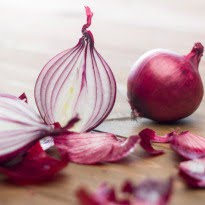
It’s difficult to resist a perfectly ripe strawberry, but did you know just how good they are for you? Nutritionist Jo Lewin shares the nutrition benefits of the bright red berry.
An introduction to strawberries
The strawberry, Fragaria, is one of the most popular berry fruits in the world. There are more than 10 species of Fragaria that differ in flavour, size and texture yet they all have the same characteristic heart-shaped, red flesh and seeded coat together with small, regal, leafy green caps and stems that adorn their crowns.
Did you know…
…strawberries are not actually fruits as their seeds are on the outside. Strawberry plants are runners, and are not produced by seeds. They have an average of 200 seeds per fruit and are actually a member of the rose (rosaceae) family.
Big up the strawberry
Strawberries have a long history and have been enjoyed since the Roman times. Native to many parts of the world, hundreds of varieties of strawberries exist due to crossbreeding techniques. In 1714, a French engineer commissioned to Chile and Peru, observed that the strawberry native to those regions was much larger than those found in Europe. He decided to bring back a sample of this strawberry to cultivate in France. The end result was a large, juicy, sweet hybrid (the modern garden strawberry) that became extremely popular in Europe.
Fit for a king
Like many other fruits, strawberries make their claim in history as a luxury item enjoyed only by royalty. It has been alleged that newly weds were entitled to strawberries with soured cream as a wedding breakfast, believing them to be an aphrodisiac.
 Nutritional highlights
Nutritional highlights
Strawberries are an excellent source of vitamins C and K as well as providing a good dose of fibre, folic acid, manganese and potassium. They also contain significant amounts of phytonutrients and flavanoids which makes strawberries bright red. They have been used throughout history in a medicinal context to help with digestive ailments, teeth whitening and skin irritations. Their fibre and fructose content may help regulate blood sugar levels by slowing digestion and the fibre is thought to have a satiating effect. Leaves can be eaten raw, cooked or used to make tea.
The vibrant red colour of strawberries is due to large amounts of anthocyanidin, which also means they contain powerful antioxidants and are thought to protect against inflammation, cancer and heart disease.
| A 100g serving of strawberries contains: | |||
| 32 calories | 0.3g fat | 7.7 carbohydrate | 2g fibre |
How to select and store
Choose berries that are firm, plump, unblemished and free of mould. Look for those that have a shiny, deep red colour and bright green caps attached. Once picked, strawberries do not ripen further so avoid those that are dull, or have green or yellow patches. Wash and handle them with care. Bring to room temperature before serving.
Best of British…
The strawberry season in the UK is short and runs from the end of May through July. To achieve maximum yields during this short season, farmers need to protect emerging berries from the muddy soil. They do this by spreading a layer of straw around each new plant – hence the name strawberry.
Try to choose locally grown strawberries during the harvesting season as they will have the best flavour, though imported berries are available all year round. The scent of strawberries can be an indicator of quality. They are highly perishable and so are best eaten within a couple of days.
Safety
It may come as a surprise to learn that strawberries are a common allergen. If you have allergies to birch pollen, you are more likely to develop a secondary food allergy to strawberries. Most common symptoms are experienced in the mouth and throat – tingling, itching, watery eyes and runny nose. Although the white strawberry variety is known to contain less of the allergen, they are best avoided if you experience a strawberry allergy. If you are concerned about food allergies or anaphylaxis consult your GP
[“source-ndtv”]










